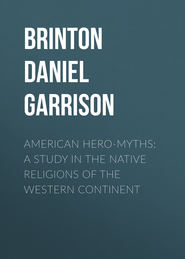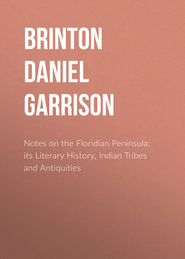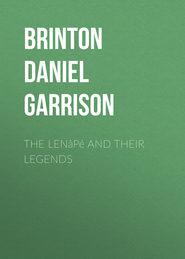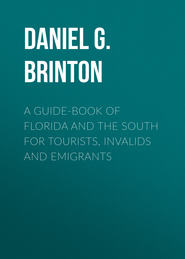По всем вопросам обращайтесь на: info@litportal.ru
(©) 2003-2024.
✖
The Arawack Language of Guiana in its Linguistic and Ethnological Relations
Настройки чтения
Размер шрифта
Высота строк
Поля
dayaháddipa, I shall walk.
bujaháddipa, thou wilt walk.
lijaháddipa, he will walk.
tujaháddipa, she will walk.
wayaháddipa, we shall walk.
hujahaddipa, you will walk.
nayahaddipa, they will walk.
Optative Mood
Present:
dayahaddama or dayahaddinnika, I may walk.
First preterite:
dayahaddinnikábima
Second preterite
dayahaddinbünáma
Third preterite:
dayahaddinnikubáma
Imperative Mood
bujahaddáte or bujahaddalte, walk thou.
hüjahaddáte or hujahaddalte, walk ye.
nayahaddáte, let them walk.
wayahaddali, let us walk.
Participles
ayahaddinnibi, to have walked to-day.
ayahaddinnibüna, to have walked yesterday.
ayahaddínnikuba, to have walked.
ayahaddínnipa, to be about to walk.
Gerund
ayahaddinti.
ayahaddinnibia.
The following forms also belong to this verb:
ayahaddinnibiakubáma, to may or can walk.
ayahaddahálin, one who walks there (infinitive form).
As in all polysynthetic languages, other words and particles can be incorporated in the verb to modify its meaning, thus:
dayahaddáruka, as I was walking.
dayahaddakanika, I walk a little.
dayahaddahittika, I walk willingly.
In this way sometimes words of formidable length are manufactured, as:
massukussukuttunnuanikaebibu, you should not have been washed to-day.
Negation may be expressed either by the prefix m or ma, as mayahaddinikade, I do not walk (where the prefix throws the pronoun to the end of the word, and gives it the form appropriate for that position), or else by the adverb kurru, not. But if both these negatives are used, they make an affirmative, as madittinda kurru Gott, I am not unacquainted with God.
COMPOSITION OF WORDS AND SENTENCES
“In general,” remarks Prof. Von Martius, “this language betrays the poverty and cumbrousness of other South American languages; yet in many expressions a glimpse is caught of a far reaching, ideal background.”[4 - Beiträge zur Ethnographie und Sprachenkunde Amerika’s zumal Brasiliens, B. I., p. 705 (Leipzig, 1867).] We see it in the composition and derivation of some words; from haikan to pass by, comes haikahu death, the passing away, and aiihakü marriage, in which, as in death, the girl is lost to her parents; from kassan to be pregnant, comes kassaku the firmament, big with all things which are, and kassahu behü, the house of the firmament, the sky, the day; from ükkü the heart, comes ükkürahü the family, the tribe, those of one blood, whose hearts beat in unison, and üküahü a person, one whose heart beats and who therefore lives, and also, singularly enough, ükkürahü pus, no doubt from that strange analogy which in so many other aboriginal languages and myths identified the product of suppuration with the semen masculinum, the physiological germ of life.
The syntax of the language is not clearly set forth by any authorities. Adjectives generally, but not always, follow the words they qualify, and prepositions are usually placed after the noun, and often at the end of a sentence; thus, peru (Spanish perro) assimakaku naha à, the dog barks her at. To display more fully the character of the tongue, I shall quote and analyze a verse from the Act Apostelnu, the 11th verse of the 14th chapter, which in the English Protestant version reads:
And when the people saw what Paul had done, they lifted up their voices, saying in the speech of Lycaonia, The gods are come down to us in the likeness of men.
In Arawack it is:
Addikitti uijuhu Paulus anissiäbiru, kakannaküku na assimakâka hürküren Lÿcaonia adiân ullukku hiddin: Amallitakoananutti lukkunu dia na buté wakkarruhu, nattukuda aijumüneria wibiti hinna.
Literally:
They – seeing (addin to see, gerund) the – people Paulus what – had been done (anin to do, anissia to have been done), loudly they called altogether the – Lycaonia speech in, thus, The – gods (present participle of amallitin to make; the same appellation which the ancient Greeks gave to poets, [Greek: poiêtai] makers, the Arawacks applied to the divine powers) men like, us to now (buté nota præsentis) are – come – down from – above – down – here ourselves because – of.
AFFILIATIONS OF THE ARAWACK
The Arawacks are essentially of South American origin and affiliations. The earliest explorers of the mainland report them as living on the rivers of Guiana, and having settlements even south of the Equator.[5 - De Laet. Novus Orbis, lib. xvii., cap. vi.] De Laet in his map of Guiana locates a large tribe of “Arowaceas” three degrees south of the line, on the right bank of the Amazon. Dr. Spix during his travels in Brazil met with fixed villages of them near Fonteboa, on the river Solimoes and near Tabatinga and Castro d’Avelaes.[6 - Martius, Ethnographie und Sprachenkunde Amerika’s, B. I., S. 687.] They extended westward beyond the mouth of the Orinoco, and we even hear of them in the province of Santa Marta, in the mountains south of Lake Maracaybo.[7 - Antonio Julian, La Perla de la America, la Provincia de Santa Marta, p. 149.]
While their language has great verbal differences from the Tupi of Brazil and the Carib, it has also many verbal similarities with both. “The Arawack and the Tupi,” observes Professor Von Martius, “are alike in their syntax, in their use of the possessive and personal pronouns, and in their frequent adverbial construction;”[8 - Ethnographie, etc., B. I., S. 714.] and in a letter written me shortly before his death, he remarks, in speaking of the similarity of these three tongues: “Ich bin überzeugt dass diese [die Cariben] eine Elite der Tupis waren, welche erst spät auf die Antillen gekommen sind, wo die alte Tupi – Sprache in kaum erkennbaren Resten übrig war, als man sie dort aufzeichnete.” I take pleasure in bringing forward this opinion of the great naturalist, not only because it is not expressed so clearly in any of his published writings, but because his authority on this question is of the greatest weight, and because it supports the view which I have elsewhere advanced of the migrations of the Arawack and Carib tribes.[9 - The Myths of the New World; a Treatise on the Symbolism and Mythology of the Red Race of America, p. 32 (New York, 1868).] These “hardly recognizable remains of the Tupi tongue,” we shall see belonged also to the ancient Arawack at an epoch when it was less divergent than it now is from its primitive form. While these South American affinities are obvious, no relationship whatever, either verbal or syntactical, exists between the Arawack and the Maya of Yucatan, or the Chahta-Mvskoki of Florida and the northern shore of the Gulf of Mexico.











